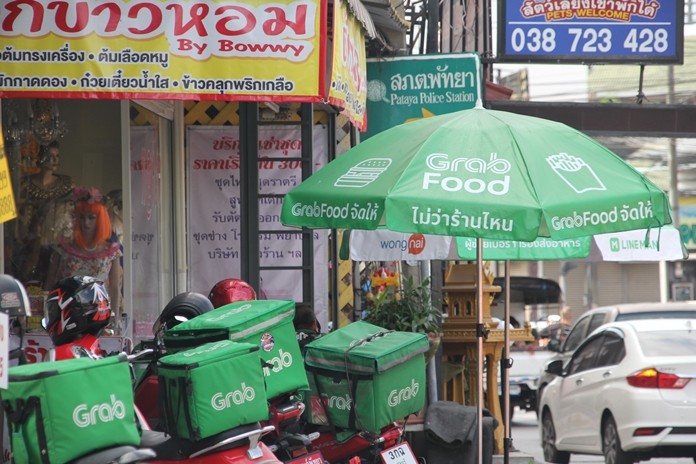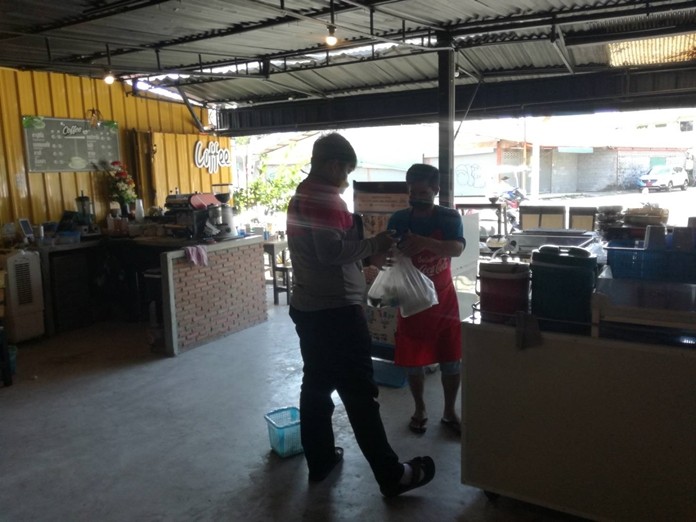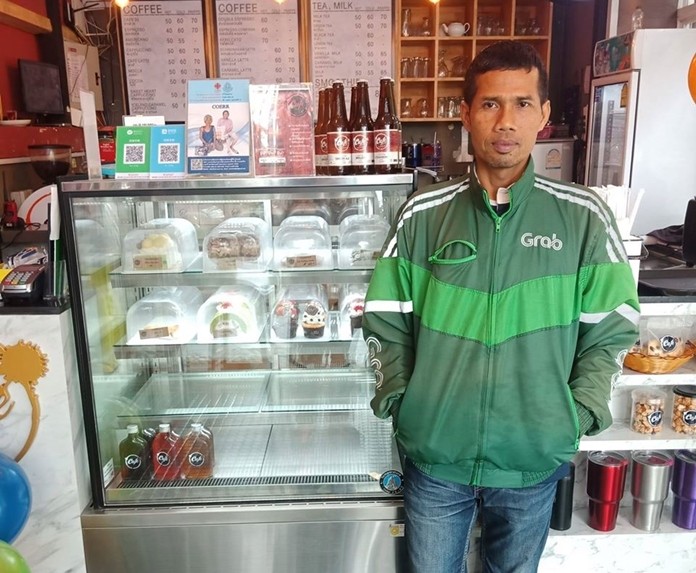
With everyone confined to their homes, the food-delivery business is booming.
Services such as Foodpanda, Grab Food and Line Man have never have been busier. Low-paid drivers who actually staged labor strikes against Foodpanda in the past are now making more money than neighbors, most of whom have been laid off due to the coronavirus pandemic.
Food-delivery services also have been a lifeline of sorts for restaurants, which have been restricted to take-out and delivery. However, even with the delivery boom, many restaurants have thrown in the towel and closed due to the high commissions charged by Foodpanda and Grab.
The market leader, Foodpanda was taking up to 35 percent of an order, but with the sudden windfall, the service this past week upped its cut for new restaurants to 45 percent. At those rates, many restaurants have simply closed, as all the profits are going to the delivery service.
Line Man, by comparison, takes no cut of the fee, but charges high prices to the customer for delivery. In some cases, the delivery charge can be more than the price of the meal.
Clearly, the ones benefitting most from the coronavirus food-delivery boom are the corporations behind the mobile apps and websites. Drivers are doing better, but customers are paying more and restaurants are not even breaking even in some cases.
Thepporn Donwitai, a former messenger for a private company, switched to driving for Grab as he can make more money now. He’s earning at least 500 baht a day and as much as 2,000 baht a day including tips.

Expenses for motorcycle upkeep and gas are his responsivity, however.
Thepp said he is concerned about contracting Covid-19 from his many customers, but said he wears a face mask and washes his hands often.
Foodpanda and others also now are pushing “contactless delivery” in which customers pay via credit card and have minimal or no contact with drivers.
With unemployment skyrocketing, the delivery firms – which for years have struggled to find drivers – are now swamped with applications.

 |
 |
 |





